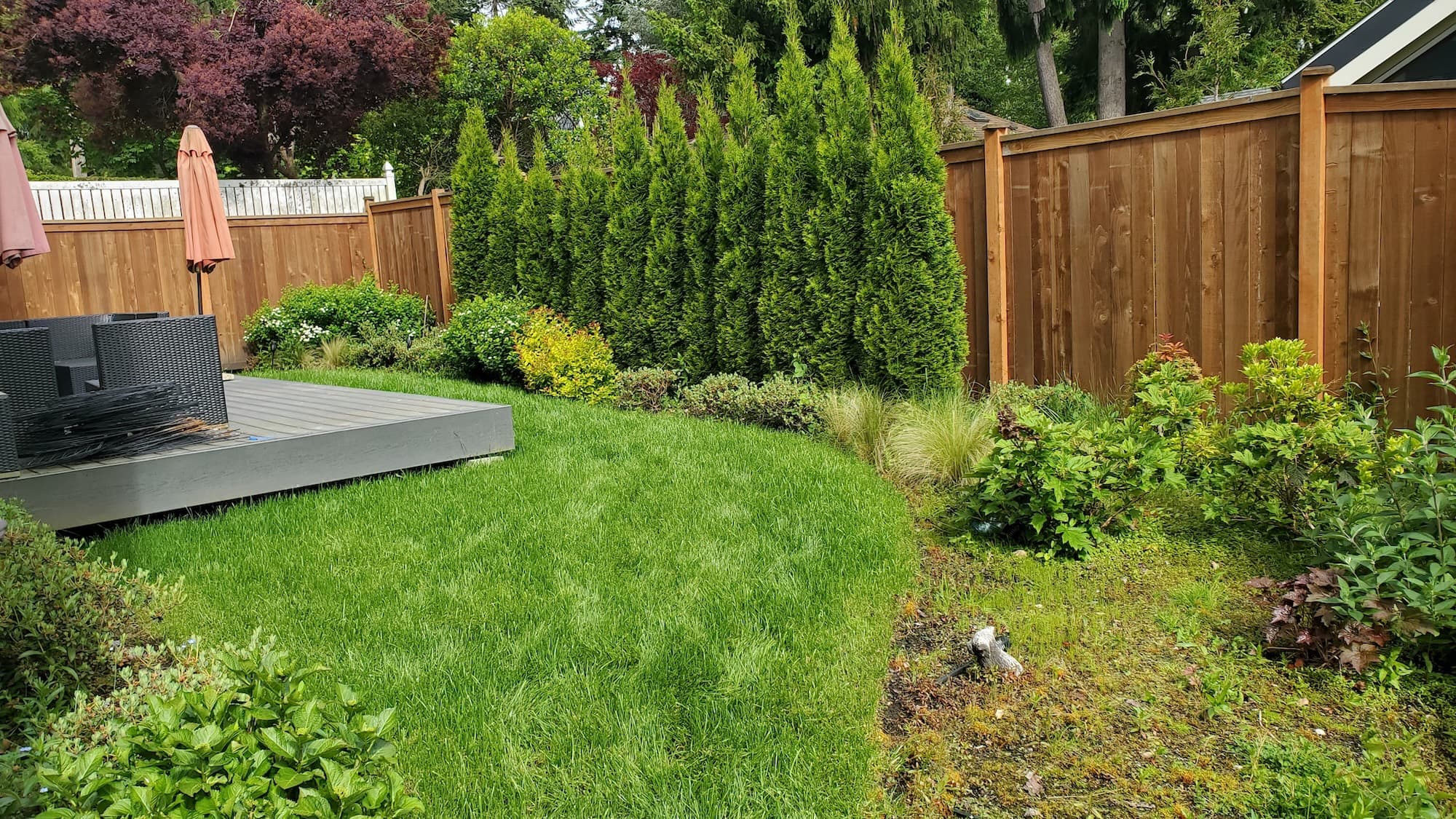West Seattle Blackberry Root Removal

Homeowner’s Issue
Blackberries are everywhere in West Seattle — spreading from vacant lots, trail corridors and old hedgerows into yards in Admiral, High Point, and down toward Alki and Fauntleroy. Our soils are typically compacted fill on plateaus and loamy, organic-rich pockets in hollows; both hold moisture through Seattle’s long, cool wet season and help brambles re-sprout from root fragments. North- and west-facing slopes and shady corners (think Lincoln Park ravine edges) favor moss and ivy, which complicates hand-digging and smothering.
Homeowners see brambles choking out natives, undermining fences, and making narrow access paths unsafe because of thorns. On steeper properties the root mass can help hold soil — careless removal without follow-up can expose erosion risks. HOA rules and curb appeal matter here: tidy edges and low, native planting are often required. Rainy winters bring soft ground that lets roots pull free more cleanly, while dry summers make hand-grubbing harder but reduce immediate regrowth. We focus on manual, sustainable methods — no herbicides — because chemical control damages nearby native plants and the Puget Sound watershed. Proper removal plus follow-up planting, mulching, or smothering is what actually prevents regrowth in West Seattle yards.
Our Quality Service
We remove blackberry roots with proven, low-impact techniques: manual grubbing, cutting crowns, targeted excavator work for very large thickets, and smothering with cardboard and mulch where appropriate. Tools we use include mattocks, root saws, digging bars, trustable small excavators for steep or compacted sites, and wheelbarrows for green-waste staging. We never use herbicides — only physical removal, repeated follow-ups, and organic mulches.
Typical timelines: small patches cleared in a half day; medium yards take a full day; heavy infestations or slope projects can require phased work (2–4 visits over weeks). We coordinate with City of Seattle green‑waste rules, and can haul to approved yards or leave materials for green bin pickup. Our local knowledge helps us plan around seasonal rainfall, steep slope stability, and native replanting windows for the best long-term results.
Benefits you’ll see: safer access, improved curb appeal, reduced maintenance, better drainage, and restored space to plant low-maintenance natives or lawn.
What’s Included
- Onsite assessment and written quote.
- Manual root and crown removal; small excavator option for large thickets.
- Removal and hauling of cut canes and roots to green‑waste or landfill per your choice.
- Area grading and light soil prep where needed.
- Final mulch application (if selected) to suppress regrowth.
Options / Upgrades:
- Mulch + cardboard smothering (6–12 month suppression).
- Organic soil amendments and compost to restore soil after grubbing.
- Native replanting packages (drought-tolerant, shade-tolerant options).
- Landscape fabric + gravel for paths or high-traffic areas.
- Haul-away vs. leave-for-City green bin (we follow Seattle disposal guidelines).
Before & After / Expectations
Expect noise, dirt, and some disruption during work days; blackberry jobs are physical and messy. Small jobs usually leave a tidy site the same day; larger infestations may require staged removals and repeat visits to pull resprouts. On slopes or near retaining features we’ll take extra erosion-control steps and may recommend native groundcovers to stabilize soil after removal.
Care tips for West Seattle:
- Water new plantings in early morning during dry spells, and avoid overhead watering in wet seasons.
- Plan follow-ups in late spring and late summer; those are peak resprout times.
- Watch shady, damp spots (north/west exposures) for moss and new cane bases — they need regular hand-pulling.
- Avoid driving heavy equipment on saturated lawns to prevent compaction.
FAQs
Q: How soon will the blackberries be gone for good?
A: You’ll see most canes removed immediately, but complete suppression usually takes 1–2 growing seasons with follow-up pulls and mulching.
Q: Do you use herbicides?
A: No. We use manual removal, smothering, and organic soil methods only.
Q: Can you work on steep slopes or near the bluff at Alki?
A: Yes. We evaluate slope stability first and use hand methods or small machinery with erosion controls where needed.
Q: What about disposal — do you haul it away?
A: We offer haul-away to green‑waste or can prepare piles for City green bin pickup. Dump fees are disclosed upfront.
Call to Action
If blackberries are taking over your West Seattle yard — from Fauntleroy to Admiral — book a free estimate and we’ll lay out a phased, sustainable plan. Quick scheduling for small jobs; realistic timelines and follow-up plans for larger sites. Trusted local crew, clean work, no herbicides.
Email: neatandtidyseattle@gmail.com
Phone: 206-538-9344
Licensed • Bonded • Insured
Book a free walkthrough and get a clear, local plan to reclaim your yard.










